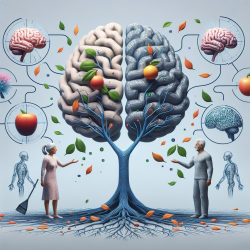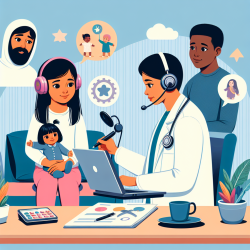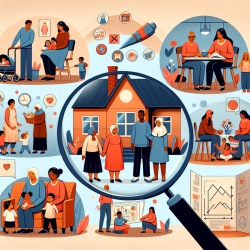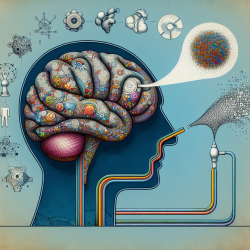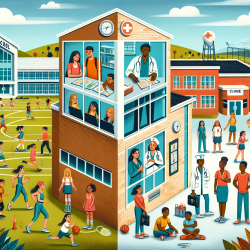Introduction
In the realm of speech-language pathology, understanding the cognitive impacts of bilingualism is crucial, especially when working with diverse populations. A recent study titled "Bilingual neurocognitive resiliency, vulnerability, and Alzheimer's disease biomarker correlates in Latino older adults enrolled in the Health and Aging Brain Study – Health Disparities (HABS-HD)" sheds light on how bilingualism affects cognitive performance in Latino older adults, particularly those with mild cognitive impairment (MCI).
Key Findings
The study reveals that bilingual Latino adults exhibit cognitive resilience, performing better on tasks related to processing speed and executive function compared to their monolingual counterparts. However, they also show cognitive vulnerability, particularly in tasks involving verbal fluency during the MCI phase. This duality suggests that while bilingualism can enhance certain cognitive functions, it may also present challenges in specific areas.
Implications for Practitioners
For speech-language pathologists, these findings underscore the importance of considering bilingualism when assessing cognitive and language abilities. Here are some practical steps to integrate this knowledge into practice:
- Comprehensive Assessment: Use a bilingual approach when assessing cognitive functions, ensuring that both languages are considered to avoid misdiagnosis.
- Tailored Interventions: Design interventions that leverage the cognitive strengths of bilingual individuals, such as enhanced processing speed, while addressing areas of vulnerability like verbal fluency.
- Family and Cultural Context: Engage with families to gather detailed language histories and cultural contexts, which can inform more personalized and effective therapy plans.
Encouraging Further Research
This study opens avenues for further research into how bilingualism affects cognitive decline and resilience. Practitioners are encouraged to contribute to this growing body of knowledge by exploring:
- The impact of language dominance and age of acquisition on cognitive outcomes.
- The role of bilingualism in other neurodegenerative conditions beyond Alzheimer's disease.
- Innovative assessment tools that accurately reflect the cognitive profiles of bilingual individuals.
Conclusion
The insights from this research are invaluable for enhancing therapeutic outcomes in bilingual populations. By understanding the nuanced effects of bilingualism on cognition, speech-language pathologists can better support Latino older adults, ultimately improving their quality of life.
To read the original research paper, please follow this link: Bilingual neurocognitive resiliency, vulnerability, and Alzheimer's disease biomarker correlates in Latino older adults enrolled in the Health and Aging Brain Study – Health Disparities (HABS-HD).
